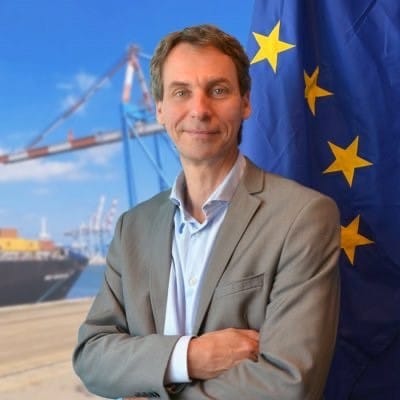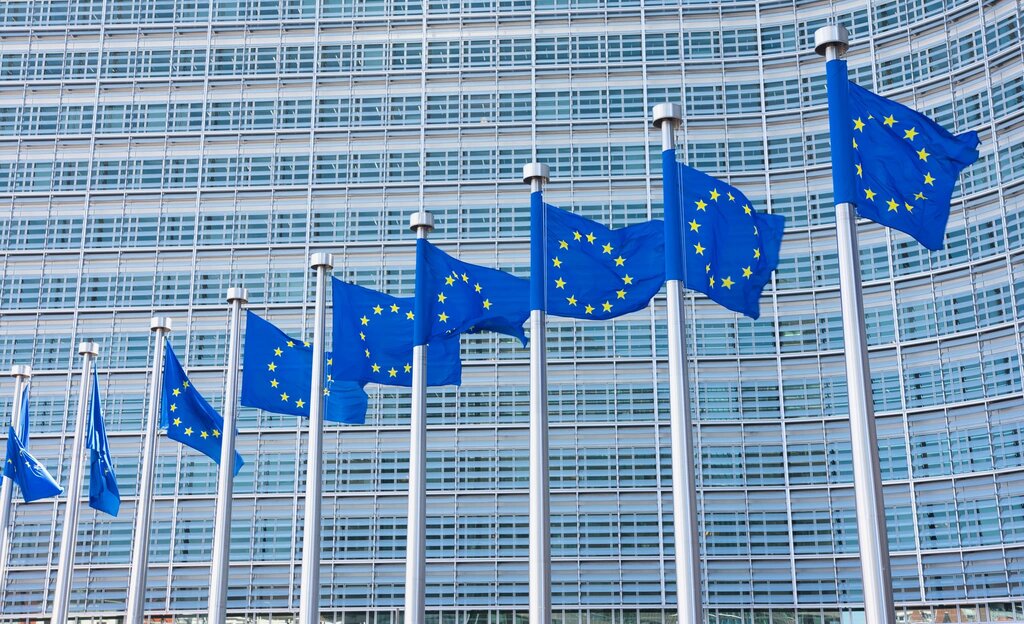ReThink Hong Kong is a groundbreaking two-day conference spotlighting sustainable economy, environmental policies, and all things related to sustainability. Its second edition will take place on October 5-6 at the HKCEC where speakers and panelists will gather and share a wide spectrum of insights and solutions, including the unique leverage EU trade policy has in driving and achieving sustainability.
—
Earth.Org spoke with Walter van Hattum, Head of the Economic and Trade Section at the European Union Office to Hong Kong and Macao, ahead of his panel at ReThink, about EU policies for sustainable trade.
Can You Tell Us More About Your Role in EU Trade Policies?
Since January 2021, I’ve been heading the trade section of the EU Office to Hong Kong and Macao, and managing the full spectrum of EU trade policies. Globally, we use our trade agenda to leverage issues such as human rights, labour rights, and the environment. Sustainability has become core of our trade policy. In the countries I worked in, people are actually quite keen to take up sustainability, but these are not necessarily the people in power. By putting sustainability at the core of trade objectives, they become joint objectives. I have seen good examples in countries I worked in like Sri Lanka, Pakistan, the Philippines and Mongolia where government officials were incentivised to push sustainability changes because trade preferences were offered, bringing local industry behind our sustainability agenda.
The EU Green Deal Recently Rolled Out a Comprehensive Legislative Bundle. Can You Tell Us More About it?
First, you might have seen the ambitious package that was just released earlier this month to put the European Green Deal in place. It will transform the EU into a modern, resource-efficient and competitive economy, ensuring no net emissions of greenhouse gases by 2050, economic growth being decoupled from resource use and no person and no place are left behind.
On July 14, the European Commission adopted a set of proposals to make the EU’s climate, energy, transport and taxation policies fit for reducing net greenhouse gas emissions by at least 55% by 2030, compared to 1990 levels. Achieving these emission reductions in the next decade is crucial to Europe becoming the world’s first climate-neutral continent by 2050 and making the European Green Deal a reality. This includes expanding our emission trading system to other sectors, such as aviation and maritime, to reach zero emissions in motor transportation by 2035. It also included land use; forestry and agriculture; renewable energy; energy efficiency and energy taxation policies.
When we revised our trade policy, there was an overall consensus that trade policy should be designed in a manner that promotes sustainability and supports the transformation of our economy in full alignment with the European Green Deal. Indeed, EU trade policy encompasses a number of critical areas for sustainability, including a carbon border adjustment mechanism to avoid carbon leakage, climate change provisions in our free trade agreements, and a Sustainable Corporate Governance proposal.
The EU is pushing very hard – and hopefully Hong Kong will join us – to make sustainability a core agenda for the WTO. We want to put in place a carbon border adjustment mechanism and for it to be WTO compliance. It’s the only way to actually make real changes, not only in Europe but worldwide.
How Do EU Trade Policies Relate Back to the Hong Kong Agenda?
I’ve had very good meetings with various governmental departments in Hong Kong in relation to sustainability. There’s an appetite for economic sustainability in the city and a lot of discussions on sustainable finance. The question is how can Hong Kong step up its game? Relating back to the Green Deal, we look at how we can dialogue with Hong Kong with regard to electrification in transportation, sustainable infrastructure, green finance and a circular economy.
I’m extremely proud to be able to represent the EU for its Green deal and the role our trade policy plays. To know I might leave behind a world better than the world I grew up in. If we get the whole world behind our objective including Hong Kong, the generations after us can enjoy a climate neutral world.
You might also like: Rethinking the Future of Green Building and Sustainable Architecture

Walter van Hattum, Head of the Economic and Trade Section at the European Union Office to Hong Kong and Macao.
What Has Been the Biggest Challenges in Pushing the Dialogue?
There are considerations in terms of who you need to dialogue with on the policies involved – is it the Hong Kong government or with Beijing, with industry or government? But I do recognise that on climate change parties are supportive of the sustainability agenda. Our trade policy recognises that even if we would make Europe climate neutral, it amounts to (only) 8% of global emissions. We cannot do it on our own. We can use our trade as leverage, being the economic bloc and investment partner to many countries, and convince other countries to follow suit.
We were very happy about Hong Kong’s carbon neutral goals set for 2050, but it remains a challenge adopting a circular economy or prioritising sustainable procurement. Likewise, consumer behaviour and awareness still has a long way to go compared to Europe, So I hope we could work together on that as well.
How Do Events like ReThink Help Reach Shared Sustainability Goals?
What ReThink can do is bring people together. The part of my job that I like most is that by trying to find a level of respect, communication and cooperation, we can convince others to join forces behind the sustainability agenda. You don’t need bureaucrats like me – but we can help – you need more businesses and civil society to make the change. For the industry to survive into the next century is to take sustainability issues seriously.
Featured image by: Flickr

















